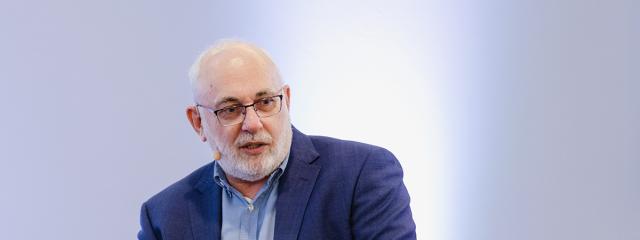Wealthsimple Q and A: Access, innovation and the future of payments in Canada
Payments Canada speaks with Hanna Zaidi, Chief Compliance Officer for payments at Wealthsimple, about becoming a Payments Canada member, being granted a direct settlement account at the Bank of Canada and what the future has in store for payment innovation.
What was the motivation behind Wealthsimple’s decision to join Payments Canada?
In December 2021, our securities dealer, Wealthsimple Investments Inc. (WSII), became a member of Payments Canada. WSII powers our investment products and allows us to serve 2.5 million Canadians across our ecosystem. We move a lot of money in, out and within our ecosystem. However, we want to reimagine the money movement experience for our clients to be more delightful. Membership to Payments Canada is an important catalyst for getting us there. Having direct access to payment infrastructure is critical to building the user experience we’ve long imagined for Canadians.
Why was it so important for Wealthsimple to receive approval for a Bank of Canada settlement account?
We are the first ever non-bank/credit union to ever be granted a settlement account at the Bank of Canada. This decision is significant for a few reasons and will open a number of doors for us as we continue to build out our products and services. Ultimately, it will mean more choice, more competition, and better payment and financial service products for Canadians.
Canadians are facing the highest cost of living in decades and, in response, are rethinking the fees they pay and quality of service they receive. In fact, when we asked Canadians what mattered most to them when it came to financial services, affordability ranked #1 across all demographics. We believe we can provide a better experience and better value to Canadians than what’s currently available in financial services. To be successful, we need to operate and compete on a level playing field with incumbents. This settlement application takes us a step closer.
The Bank of Canada made a thoughtful decision based on the facts in front of them and, by approving us, took a meaningful step to support competition and innovation here in Canada. Our approval is a result of the impacts we’ve had on the Canadian financial ecosystem and the significant investments we have made in our regulatory compliance, anti-money laundering, privacy, security and overall operations to be a world-class financial institution.
The challenge remains that the upcoming payment system Real-Time Rail has been delayed and many of these benefits can only be realized for Canadians once this system is operational. In the meantime, we’re excited to see what other opportunities our direct settlement account will present. Things like instantaneous wage disbursement, real-time cross border payments and more.
Aside from direct access to Payments Canada systems, what other value does membership provide to Wealthsimple?
Our membership with Payments Canada helps us continue championing for greater competition and innovation in financial services. In addition to accessing Payments Canada systems, Wealthsimple also sits on the Membership Advisory Council (MAC) to advise the Payments Canada board on payment strategy. This gives Wealthsimple a seat at the table alongside banks and other key industry players to share data and insights, discuss what’s on the hearts and minds of Canadians, and help shape the future of Canada’s payment infrastructure.
There is strong industry-wide support for changes to the Canadian Payments Act that will broaden access to Canada’s core payments systems. In your opinion, how would that benefit Canadians, Canadian businesses and the overall Canadian payment industry?
Compared to other jurisdictions, Canada still has a ways to go. But we can learn from other countries about the potential that broader access to core payment systems can unlock for consumers, businesses and the industry at large.
The U.K. is a prime example. In 2017, the Bank of England decided to allow non-bank payment companies direct access to U.K. payment systems — something that had historically been reserved for incumbent financial institutions. The resulting explosion of new challenger banks revolutionized British financial services for consumers. For instance, Wise (previously TransferWise) was able to completely transform the international money transfer space. Money management app, Revolut, became an international powerhouse. By allowing competition — and by making merit more important than historic dominance — the central bank gave consumers access to better and more affordable options. And fintechs were given greater opportunity to build, scale and ultimately succeed.
If you were to look into a crystal ball, what does the Canadian payments landscape look like five years from now?
Here are my hopes for where the industry could be in 2027:
The Real-Time Rail payment system is fully operational and we’ve started to add new functionality from the Real-Time Rail roadmap. Everyday Canadians and small businesses are seeing instant payments that operate 24/7/365 and the use cases we’ve long discussed are coming to fruition.
We’ve seen amendments to the Canada Payments Act so more new entrants – beyond Wealthsimple – can go through the process of getting direct access to payment systems.
I have high hopes that we’re well into an open banking framework being implemented, and we’re starting to see an ecosystem rich with participants. Data rights and portability in financial services have become as commonplace as other industries – like being able to port over your phone number from another telco. We’ve learned from Australia’s framework and are delivering ‘write access’ capabilities over the real-time-rail payment system because of the merits of integrating the two. Like with the Real-Time Rail, we’re seeing a surge of smart products, use cases and companies leveraging our open banking ecosystem and Canadians are reaping the benefits: access to new tools and services that help them with real problems they’re trying to solve, like retirement readiness, financial planning and more.




